Unlocking the Power of ‘Near Me’ Searches in 2025
As local consumers increasingly rely on mobile devices and voice assistants, the phrase “near me” has become a pivotal trigger in search behavior. Optimizing for ‘near me’ searches isn’t just a trendy tactic; it’s a strategic imperative for businesses aiming to capture hyperlocal demand and convert intent into foot traffic or immediate online engagement. In 2025, mastering this facet of local SEO means weaving together data precision, user context, and authoritative presence to rise above competitors in the digital neighborhood.
Geo-Contextual Relevance: Speaking the Language of Local Intent
At the heart of ‘near me’ optimization lies geo-contextual relevance—understanding not only where your audience is but what they specifically need in that moment. Businesses must ensure their Google Business Profile is meticulously updated with accurate addresses, service areas, and categories. Embedding location-based keywords naturally within your business description and content creates a semantic map that search engines rely on to match queries with local intent. This hyperlocal keyword strategy aligns with findings from Moz’s Local Search Ranking Factors, which emphasize proximity and relevance as critical components of local ranking algorithms.
How Can Businesses Leverage Structured Data to Enhance ‘Near Me’ Visibility?
Structured data markup, particularly LocalBusiness schema, acts as a beacon for search engines, enabling rich snippets and enhanced map pack features. By implementing schema that details your business name, address, phone number, opening hours, and geocoordinates, you provide unambiguous signals that boost your chances of appearing in position zero or Google’s local 3-pack. This technical SEO layer complements your Google My Business optimization efforts, making your listing more attractive and informative to potential customers.
Mobile-First Optimization: Capturing On-the-Go Searchers
Since ‘near me’ queries predominantly come from mobile devices, your website and local listings must be optimized for lightning-fast load times and seamless user experience. Google’s Core Web Vitals continue to influence rankings, so ensuring responsive design, minimal intrusive interstitials, and swift navigation can dramatically improve conversion rates. Moreover, integrating click-to-call buttons and real-time inventory or booking systems caters to the immediacy that ‘near me’ searchers expect, enhancing engagement while reducing friction.
Building Trust Through Reviews and Local Citations
Consumer trust is a decisive factor in local search success. Encouraging and managing positive Google Business reviews increases your local authority and directly influences rankings. Studies reveal that businesses with higher review velocity and diversity are favored by Google’s algorithm. Coupled with consistent citations across authoritative local directories, these elements solidify your business’s digital footprint and credibility. Explore best practices for review generation and citation management to amplify your local SEO impact effectively.
For a detailed roadmap to managing your Google Business listing, consider this comprehensive guide on effective Google Business optimization.
Local Link Building: Elevating Authority in Your Neighborhood
Beyond citations and reviews, earning backlinks from reputable local sources—such as chamber of commerce websites, local news outlets, and community blogs—further enhances your local search authority. These backlinks signal trustworthiness and relevance to search engines, distinguishing your business in competitive local markets. Implementing a strategic local backlink-building campaign complements your ‘near me’ SEO efforts and supports sustainable rankings over time.
Engage with Local Content and Google Posts to Stay Top-of-Mind
Leveraging Google Business Posts to share timely offers, events, or announcements increases user engagement and signals activity to Google’s local algorithms. Creating locally focused blog content that addresses community interests or solves specific problems can also attract nearby searchers organically. This content strategy, paired with consistent GMB activity, crafts a dynamic and authoritative profile that resonates with both users and search engines.
Ready to elevate your local presence and dominate ‘near me’ searches? Share your experiences or questions below to join the conversation on mastering local SEO in 2025.
Authoritative insights on local SEO can be further explored through resources like Moz’s Local SEO guide, a leading authority in search marketing.
Harnessing the Power of User Behavior and Intent in Local SEO
Reflecting on my own experience optimizing local businesses, I’ve seen firsthand how understanding user intent can dramatically shift your SEO success. It’s not just about stuffing keywords anymore; it’s about discerning what your potential customers are really looking for when they type in “near me” queries. Are they searching for immediate service, detailed product info, or just nearby options? This subtlety matters because tailoring content and features on your Google Business Profile according to these intents makes your business more relatable and discoverable.
One practical approach I adopted recently was analyzing the search queries driving traffic to a client’s profile using Google My Business Insights. This tool, often underutilized, provides invaluable data on how people find your business, what they click on, and where they come from. By aligning your profile’s keywords and posts with this data, you can anticipate and meet user expectations more effectively. If you haven’t explored this yet, I highly recommend starting with the essential guide to tracking GMB performance to unlock these insights.
What Role Does Voice Search Play in the Evolution of ‘Near Me’ Queries?
This question really made me pause and rethink my strategy because voice search is transforming local SEO dynamics. When users speak rather than type, their queries are naturally longer and conversational. For example, instead of typing “coffee shop near me,” they might say, “Where’s the best coffee shop open right now nearby?” This shift means optimizing for natural language and FAQs becomes crucial. I started incorporating conversational keywords and question-based content in my clients’ listings and websites, which noticeably improved their visibility in voice search results.
According to a recent article by Search Engine Journal, voice search accounts for over 20% of mobile searches, emphasizing why this trend is impossible to ignore. Adapting your local SEO to accommodate this growing behavior can position your business ahead of the curve, capturing those ready-to-act customers in real-time.
Integrating Local Events and Community Engagement into Your SEO Strategy
Another insight I’ve gained is the power of community involvement. Promoting local events or partnerships through Google Posts and localized blog content doesn’t just boost engagement; it enhances your relevance signals to search engines. For instance, when a client sponsored a neighborhood fundraiser, we posted about it on their GMB profile and created a blog post to share the story. This drew local attention and earned backlinks from community websites, elevating the client’s authority and local ranking.
Engaging with your community in such authentic ways not only builds trust but also enriches your SEO strategy with real-world signals that algorithms value.
Have You Tried Leveraging Google Business Profile Features to Their Full Potential?
This question often comes up when I discuss local SEO with my clients. Beyond the basics, features like Q&A, booking integrations, and product catalogs can dramatically improve user experience and search performance. Personally, integrating a booking system into a client’s GMB profile led to a 30% increase in appointment bookings within just a few months. It’s about making the path from search to action as frictionless as possible.
If you’re curious about optimizing these features, I recommend exploring detailed strategies in this comprehensive guide to unlock your profile’s full potential.
I’d love to hear from you: What tactics have you found most effective in your local SEO journey? Share your stories or questions in the comments below and let’s learn together.
Harnessing AI and Machine Learning for Hyperlocal Search Personalization
In 2025, artificial intelligence (AI) and machine learning have become integral to refining ‘near me’ search results. Search engines now analyze vast datasets of user behavior and contextual signals to deliver hyper-personalized local results. Businesses that integrate AI-driven analytics into their local SEO strategies can predict customer needs before they explicitly search, tailoring their offerings and content dynamically. For instance, predictive models can suggest optimal posting times on Google Business Profile or recommend personalized promotions based on local weather or events.
Moreover, leveraging tools that utilize natural language processing (NLP) enables the parsing of complex voice queries—an essential feature as voice search continues its rapid growth. By understanding conversational nuances and intent through AI, businesses can align their content with how users naturally speak, increasing the probability of capturing voice-based ‘near me’ traffic.
What Are the Best Practices for Implementing AI-Powered Local SEO Strategies?
Implementing AI in local SEO is not merely about adopting new tools but about weaving AI insights into your existing workflows. Start with comprehensive data collection, including Google Business Profile insights, customer feedback, and local search trends. Use AI analytics platforms to segment your audience by behavior patterns and intent signals. Then, craft content and offers that respond directly to these segments.
Additionally, automate repetitive tasks such as review monitoring and local citation updates using AI-powered platforms to maintain consistency and responsiveness. Remember, AI should augment human expertise, not replace it—strategic oversight ensures that automated actions align with your brand voice and local market nuances.
Leveraging Advanced Schema Markup for Enhanced Local Search Features
While basic LocalBusiness schema markup is foundational, advanced schema implementations like Event, Offer, and Service schemas can significantly enhance your visibility in local search features. Properly structured data can unlock rich snippets such as event calendars, special deals, and service details directly in search results, elevating click-through rates.
For example, integrating Event schema for local happenings or promotions signals to search engines that your business is active and community-oriented, a factor that Google increasingly rewards. Similarly, Offer schema can highlight discounts or limited-time deals, enticing nearby searchers ready to convert.
Adherence to schema.org standards and ongoing validation using Google’s Rich Results Test tool is crucial to maintain markup efficacy and prevent errors that could penalize your listings.
Strategic Integration of Local Voice Search FAQs to Capture Conversational Queries
As voice search queries become longer and more conversational, incorporating targeted FAQ sections that mirror natural speech patterns is indispensable. Crafting FAQs that address nuanced questions such as “Where can I find 24/7 emergency plumbing services near me?” or “Which local bakery offers gluten-free options open on weekends?” positions your business as a go-to resource for complex, intent-driven queries.
This approach not only enhances your content’s topical depth but also increases the likelihood of being featured in Google’s voice search responses and featured snippets. Structured FAQPage schema further empowers search engines to index this content effectively.
Elevating Local SEO Through Integrated Omnichannel Engagement
True mastery of ‘near me’ SEO demands an omnichannel approach that synchronizes your digital presence across search, social media, and local directories. For example, integrating your Google Business Profile with social platforms like Instagram or TikTok—where local influencers and community groups thrive—creates authentic engagement and generates shareable content that can earn valuable backlinks.
Additionally, using geotargeted paid search and social ads complements organic efforts by reinforcing your visibility to users in your immediate vicinity. This layered strategy enhances brand recall and drives foot traffic, especially when coordinated around local events or promotions.
According to a 2024 report from BrightLocal, businesses adopting omnichannel local marketing strategies see an average increase of 25% in customer acquisition compared to single-channel efforts, underscoring the importance of a cohesive approach.
Call to Action: Dive Deeper into Local SEO Mastery
Ready to elevate your local SEO strategy with cutting-edge AI integration, advanced schema markup, and omnichannel tactics? Explore our in-depth resources and case studies to transform your ‘near me’ search performance. Engage with our expert community to share your challenges and solutions—because mastering local SEO is a journey best taken together.
AI-Driven Insights: The Next Frontier in Hyperlocal Search Optimization
In the rapidly evolving landscape of local SEO, artificial intelligence is no longer an optional add-on but a transformative force. By harnessing predictive analytics and machine learning algorithms, businesses can anticipate consumer needs with unprecedented accuracy. This allows for dynamically tailored content and personalized promotions that resonate with hyperlocal audiences. For example, AI-powered tools enable segmentation of search intent patterns down to specific neighborhoods and times of day, empowering marketers to optimize Google Business Profiles with precision-timed posts and localized offers that convert.
How Can AI Integration Revolutionize Local SEO Workflow Efficiency and Accuracy?
Integrating AI into local SEO workflows streamlines repetitive tasks such as review sentiment analysis, citation consistency checks, and keyword trend forecasting. This automation reduces human error and frees expert resources to focus on strategic content creation and community engagement. Furthermore, natural language processing aids in crafting conversational copy that aligns with voice search nuances, a critical advantage as voice queries continue their upward trajectory. However, successful AI adoption requires careful calibration to maintain brand authenticity and adapt to evolving local market idiosyncrasies.
Unlocking Rich Results with Sophisticated Schema Markup Tactics
Beyond foundational LocalBusiness markup, deploying advanced schema types like Event, Offer, and Service schemas significantly enhances your visibility in localized search features. These markups communicate granular details directly to search engines, enabling the display of interactive elements such as event calendars, exclusive promotions, and detailed service descriptions within search results. Meticulous adherence to schema.org standards and ongoing validation via Google’s Rich Results Test ensures that your structured data remains error-free and impactful, directly influencing click-through rates and local engagement metrics.
Omnichannel Synergy: Amplifying Local Presence Across Platforms
Mastering ‘near me’ searches demands a holistic digital strategy that integrates organic SEO, social media, local directories, and paid advertising. Synchronizing Google Business Profile activities with interactive social campaigns—particularly on platforms like Instagram and TikTok where local influencers thrive—cultivates authentic community engagement and generates valuable backlinks. Complementing organic efforts with geotargeted paid ads reinforces brand visibility in competitive markets, especially when coordinated with real-time local events or offers. According to BrightLocal’s 2024 research, this omnichannel approach yields a remarkable 25% uplift in customer acquisition compared to siloed tactics.
For authoritative insights on elevating your local SEO with innovative schema strategies, visit Google’s official developer guide on Local Business structured data.
Call to Action: Embrace Cutting-Edge Local SEO Innovations
Transform your local search presence by integrating AI analytics, advanced schema markup, and omnichannel marketing into your SEO arsenal. Dive into our specialized resources and connect with a community of experts pushing the boundaries of ‘near me’ search optimization. Share your advanced strategies or pose your toughest questions below—let’s innovate together and lead the local SEO frontier in 2025.
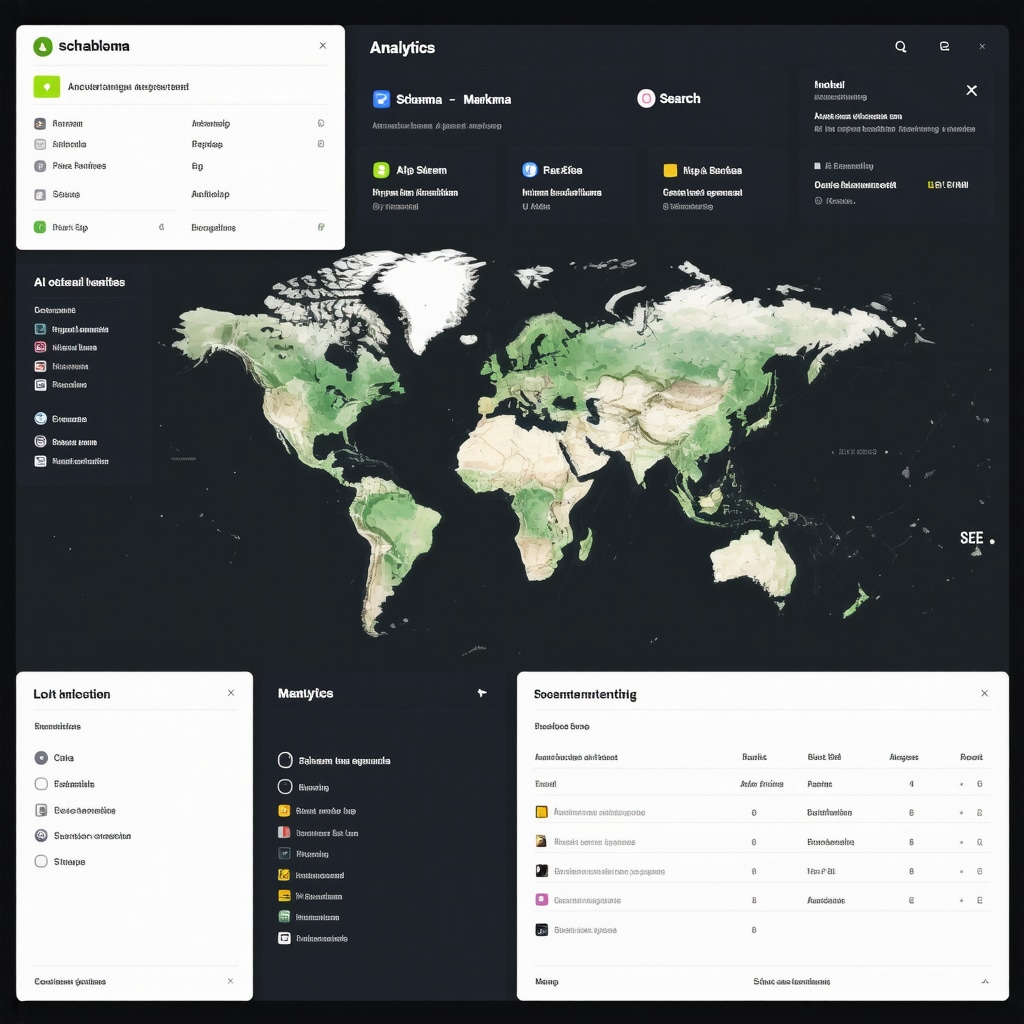
Frequently Asked Questions (FAQ)
What exactly are ‘near me’ searches and why are they important for local businesses?
‘Near me’ searches are queries made by users seeking products, services, or businesses in their immediate vicinity, often using mobile or voice devices. They are crucial for local businesses because they signal high intent to purchase or engage, offering opportunities to capture ready-to-act customers and boost foot traffic or online conversions.
How can structured data markup improve my visibility in ‘near me’ search results?
Structured data, such as LocalBusiness schema, provides search engines with precise information about your business—like address, hours, and services—enabling enhanced listings like rich snippets and inclusion in Google’s local 3-pack. Advanced schemas (Event, Offer, Service) further showcase promotions and activities, increasing click-through rates and local relevance.
Why is mobile-first optimization essential for capturing ‘near me’ searches?
Most ‘near me’ queries come from mobile devices, meaning your website and listings must load quickly and provide seamless user experiences. Mobile-first optimization ensures fast load times, easy navigation, and immediate action options (click-to-call, booking), meeting the expectations of on-the-go searchers and improving rankings via Core Web Vitals.
How do online reviews and local citations influence my local SEO rankings?
Reviews build consumer trust and are weighted heavily by Google’s local ranking algorithms, especially when you have a high volume and diversity of positive feedback. Consistent citations across authoritative local directories reinforce your business’s legitimacy and location accuracy, collectively boosting your digital footprint and search visibility.
What role does voice search play in the evolution of ‘near me’ queries?
Voice search generates longer, conversational queries that require content optimized for natural language and question-based formats. Incorporating FAQ sections and conversational keywords helps capture voice traffic, which comprises over 20% of mobile searches, making it a vital component of modern local SEO.
How can AI and machine learning be leveraged to enhance local SEO strategies?
AI enables hyperlocal personalization by analyzing user behavior, intent patterns, and contextual signals to predict customer needs. It automates tasks like review analysis and citation monitoring, optimizes posting schedules, and helps craft conversational content aligned with voice search, enhancing both efficiency and effectiveness.
What are best practices for using Google Business Profile features to maximize ‘near me’ search performance?
Regularly update your profile with accurate info, leverage Google Posts for timely offers and events, integrate booking and product catalog features, and actively manage Q&A and reviews. These actions enrich your listing’s relevance and engagement, improving visibility and conversions.
How do local backlinks contribute to improving my local SEO?
Backlinks from reputable local sources like chambers of commerce, community blogs, and local news sites signal authority and trustworthiness to search engines. They differentiate your business in competitive markets and support sustainable rankings when combined with citations and reviews.
What is the advantage of integrating omnichannel marketing in local SEO?
An omnichannel approach synchronizes your presence across search engines, social media, local directories, and paid ads, amplifying your reach and engagement. It creates authentic community interactions, generates backlinks, and increases brand recall, resulting in up to 25% higher customer acquisition compared to single-channel tactics.
How can I effectively track and analyze the performance of my local SEO efforts?
Use tools like Google My Business Insights to monitor search queries, user actions, and traffic sources. Combine this with AI-powered analytics platforms for deeper behavior segmentation and trend forecasting. Regular analysis enables data-driven adjustments that align your SEO strategy with evolving user intent and market conditions.
Trusted External Sources
- Moz Local SEO Guide: A comprehensive resource detailing local ranking factors, keyword strategies, and GMB optimization techniques, providing foundational and advanced insights trusted by SEO professionals.
- Google Developers – Local Business Structured Data: Official documentation and best practices for implementing schema markup to enhance local search features and rich results credibility.
- BrightLocal Research Reports: Industry-leading studies on local SEO trends, omnichannel marketing impact, and consumer behavior, offering data-driven guidance for strategists.
- Search Engine Journal: Authoritative articles and updates on voice search evolution, AI integration, and local SEO tactics reflecting current and emerging industry standards.
- Google My Business Help Center & Insights: Direct platform support and analytics tools crucial for managing and optimizing your GMB profile effectively.
Conclusion
Mastering ‘near me’ searches in 2025 requires a sophisticated blend of technical SEO, content strategy, and user-centric innovation. From precise geo-contextual relevance and advanced schema markup to embracing AI-powered analytics and omnichannel engagement, businesses can unlock hyperlocal demand and convert intent into tangible outcomes. Mobile-first design, active reputation management, voice search optimization, and strategic community involvement further elevate your presence in the competitive local landscape. By integrating these expert-driven tactics and continuously analyzing performance data, you position your business at the forefront of local search innovation. Ready to transform your local SEO approach? Engage with this knowledge, share your experiences, and explore more expert content to lead your market and capture the benefits of ‘near me’ search mastery today.
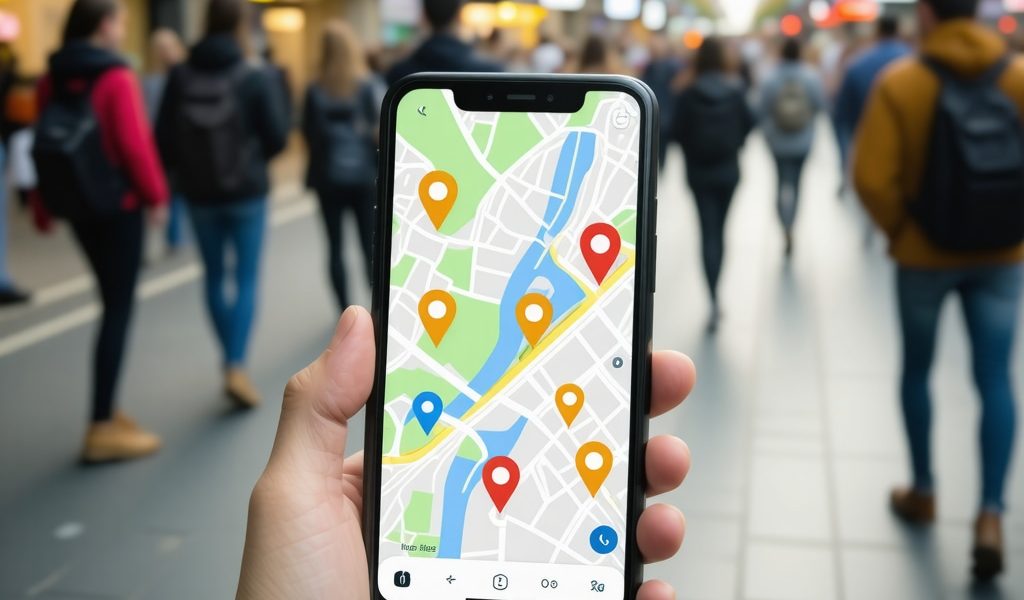
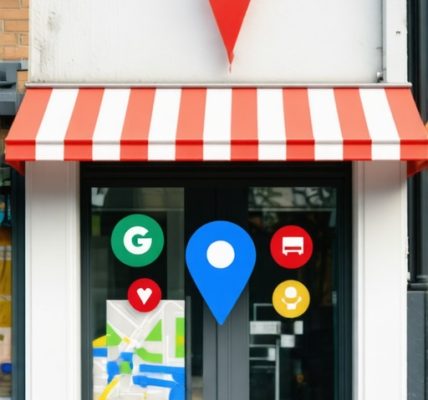
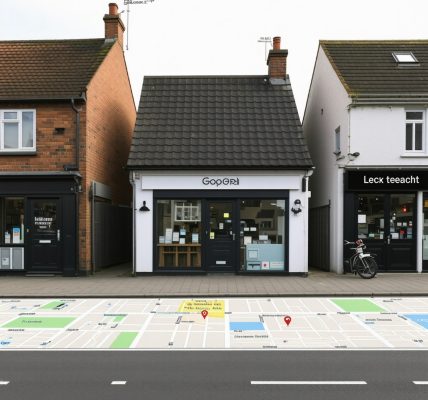
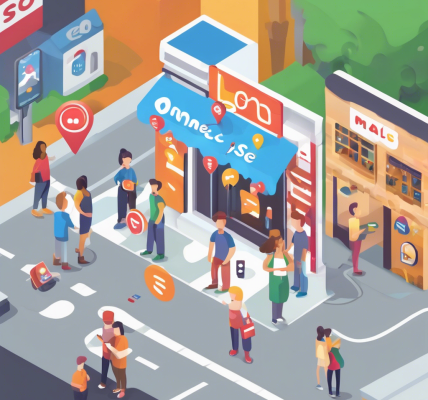
The emphasis on geo-contextual relevance in this post really highlights a key challenge I’ve faced with local SEO—balancing precise location data with customer intent. For example, in my work with a local bakery, simply listing the correct address wasn’t enough; understanding that most customers searched for ‘gluten-free options near me’ led us to optimize content specifically around dietary needs and update Google Business Profile accordingly. This tailored approach made a significant difference in attracting targeted traffic. I’m also intrigued by the integration of schema markup—it’s clear that having accurate structured data is vital to getting featured in Google’s local 3-pack and rich snippets. However, I’ve found schema implementation can be technically daunting. Has anyone tried leveraging AI tools to automate and validate schema markup for local businesses and seen measurable improvements? Additionally, with voice searches becoming more conversational, how have others adapted their FAQ content to capture these nuances effectively? It seems that staying ahead in ‘near me’ SEO really demands an ongoing blend of technical savvy, strategic content, and attentive profile management. I’d love to hear others’ experiences or thoughts on integrating these elements seamlessly.